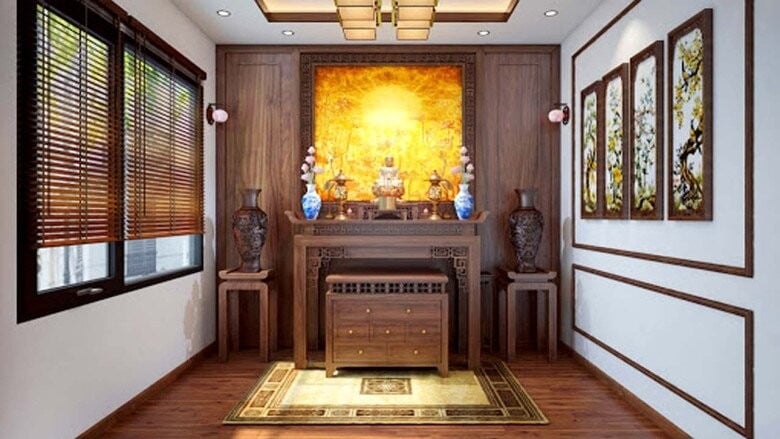In feng shui, light symbolizes yang energy and plays a crucial role in maintaining health and attracting prosperity for the occupants. A well-lit home promotes physical well-being, agility, and mental sharpness.
On the other hand, a house that is too dark can make its inhabitants feel lethargic, tired, and unmotivated. Therefore, adequate lighting is essential, but not all areas of the home require the same level of illumination. Improper lighting in certain areas may negatively impact the family’s fortune.
For instance, the living room should be brightly lit to create a fresh and welcoming atmosphere, whereas the ancestral worship area, or “phòng thờ,” benefits from softer lighting. Striking a balance between light and darkness in the home harmonizes yin and yang, benefiting the family’s health and luck.
Why does a bright living room attract wealth and prosperity?
The living room is not just a space for entertaining guests but also serves as the heart of the family. In feng shui, this area is significant as it houses the “tài vị” (wealth corner) and invites the God of Wealth. Hence, a strong yang energy and ample lighting are necessary.

The living room is the heart of the family.
A well-lit living room repels negative energies and creates a positive, joyous environment. This not only uplifts the family’s mood but also pleases the God of Wealth and makes guests feel comfortable. In contrast, a dark living room can create a gloomy atmosphere and induce fear.
Additionally, natural light has bacteria-killing properties, helping to maintain a dry, clean, and airy living space, thus contributing to a healthy environment.
Why is it considered disrespectful to have a brightly lit worship area?
Ancestral worship is a long-standing tradition in Vietnamese culture, and most families have an altar or a dedicated room for worshipping their ancestors. This area is believed to be the resting place for the souls of the departed ancestors and various deities, making it the strongest yin area in the home.
According to feng shui principles, the worship area should avoid strong lighting, such as chandeliers, high-pressure lamps, or direct sunlight. This is to prevent clashing with the yin nature of the space and to avoid disrespecting the ancestors’ spirits. The presence of strong light may be considered irreverent and could displease the ancestors, potentially leading to family misfortune.

Soft, warm lighting is more suitable for the worship area.
Hence, the worship area benefits from moderate lighting, such as warm red lighting. Direct sunlight and wind from the outside should also be avoided. If the altar is in the living room, a worship cabinet can help create a separate space. It is advisable to avoid placing the altar on top of the TV, near a fish tank, or close to the entertaining area and strong light sources, as these can negatively impact the energy of the worship space.
The Kitchen’s Dilemma: Which Way Lies Health and Happiness?
The placement of your kitchen can have a significant impact on your wealth and prosperity, according to Feng Shui principles. It is believed that positioning your kitchen in certain directions can lead to financial losses and misfortune. Avoid placing your kitchen in these two directions at all costs to prevent regret and ensure a harmonious flow of energy in your home or business premises.





































